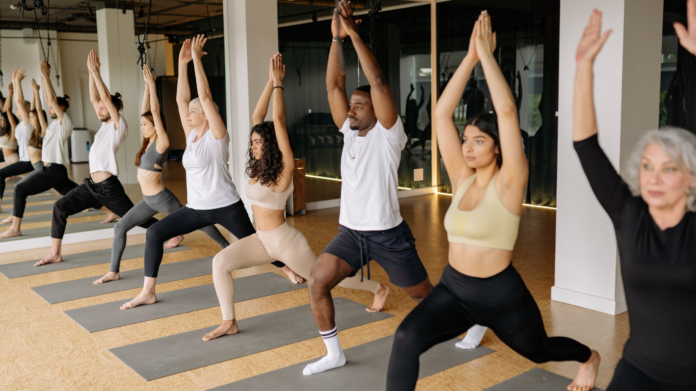Yoga has been around since ancient India and is considered to be one of the oldest forms of physical and spiritual development.
In the nineteenth century, yoga became popular, and it has since had a renaissance. Yoga was given in various fitness programs, gyms, and even online during the 1980s fitness boom.
Numerous myths about yoga have persisted even after it has been practiced for thousands of years.
Here are frequent misconceptions and the information that dispels them.
𝐌𝐘𝐓𝐇 𝟏: 𝐘𝐎𝐆𝐀 𝐈𝐒 𝐄𝐗𝐏𝐄𝐍𝐒𝐈𝐕𝐄
It will always cost money to take yoga courses, or to participate in any physical exercise for that matter. The cost of the classes will nearly astound anyone who are unfamiliar with them. However, remember that instructors will also have to pay for utilities, labor, and rent. Private yoga classes are no different.
But there are workarounds to get yoga lessons at a reasonable price. Here are some options that you can consider:
1. Signing up for a beginner’s class usually offers introductory discounts
2. Monthly or year-round packages can save you money. Just make sure you attend regularly to get the most out of each session.
3. Some companies promote and offer yoga classes for their employees as perks.
4. Search for free yoga classes online.
5. A Do-It-Yourself yoga session can be an alternative if you’re up for the challenge.
𝐌𝐘𝐓𝐇 𝟐: 𝐘𝐎𝐆𝐀 𝐈𝐒 𝐎𝐍𝐋𝐘 𝐅𝐎𝐑 𝐖𝐎𝐌𝐄𝐍
Yoga is not only for women, even if major of its practitioners are female. In actuality, yoga is a male-oriented activity; T Krishnamacharya developed contemporary yoga in 1926 at an all-boys school in Mysore, India.
Because men place more emphasis on strength than flexibility and balance, there are more women doing yoga. Essentially, yoga is open to both men and women and is not gender-specific.
𝐌𝐘𝐓𝐇 𝟑: 𝐘𝐎𝐆𝐀 𝐈𝐒 𝐀 𝐒𝐏𝐈𝐑𝐈𝐓𝐔𝐀𝐋 𝐏𝐑𝐀𝐂𝐓𝐈𝐂𝐄
Many individuals believe that yoga and Hinduism, India’s predominant religion, are related. Although it does not entail worshiping any Hindu deity, this may be the case given that it has a spiritual component. Achieving a comprehensive balance of the mind, body, and spirit is the primary goal of yoga, which means “union” in Hindi.
𝐌𝐘𝐓𝐇 𝟒: 𝐅𝐋𝐄𝐗𝐈𝐁𝐈𝐋𝐈𝐓𝐘 𝐀𝐍𝐃 𝐘𝐎𝐆𝐀
Although the difficulty of yoga varies, the ordinary person can do the fundamentals. Yoga doesn’t require you to be the most flexible person in the world. On the other hand, regular practice will increase your flexibility. Being reasonably flexible is not necessary, but it will increase your enjoyment of yoga.
People from all areas of life can benefit from yoga, which is all about enhancing one’s balance, mindfulness, and general well-being.



